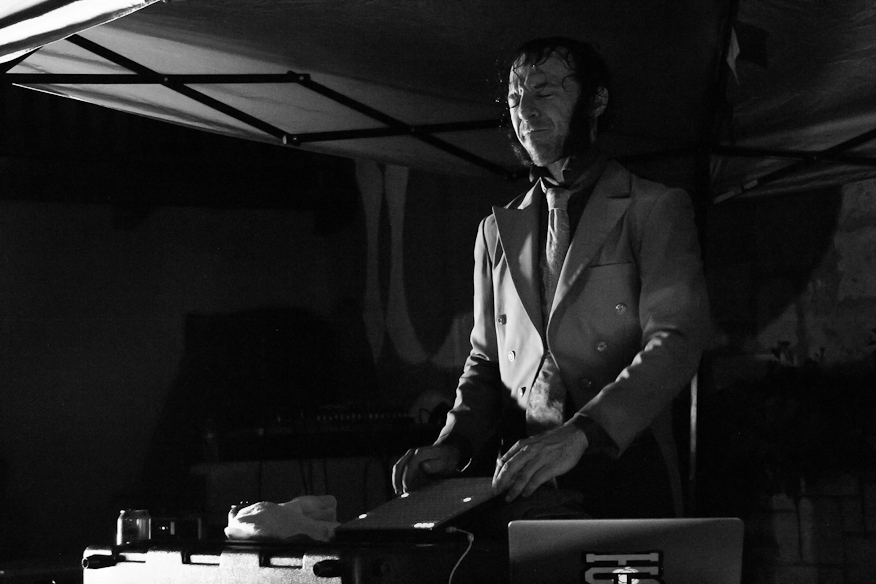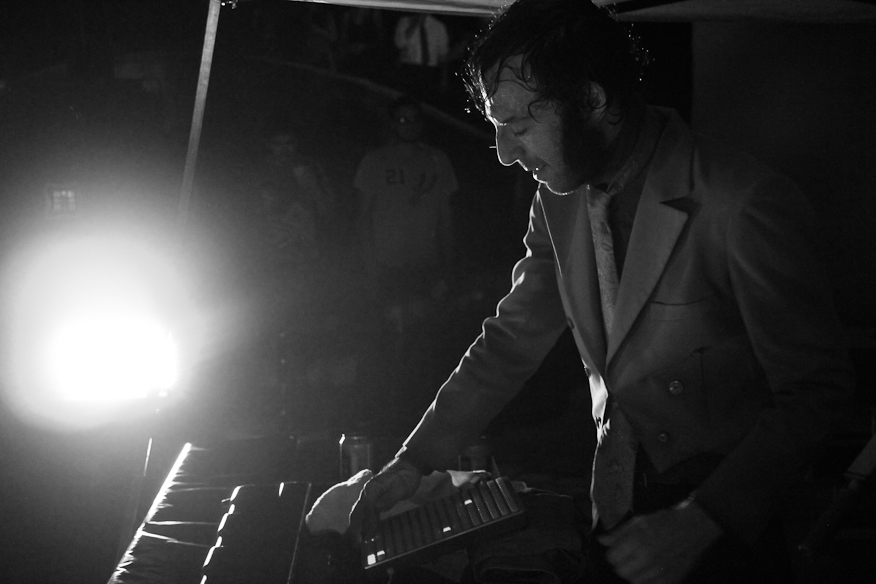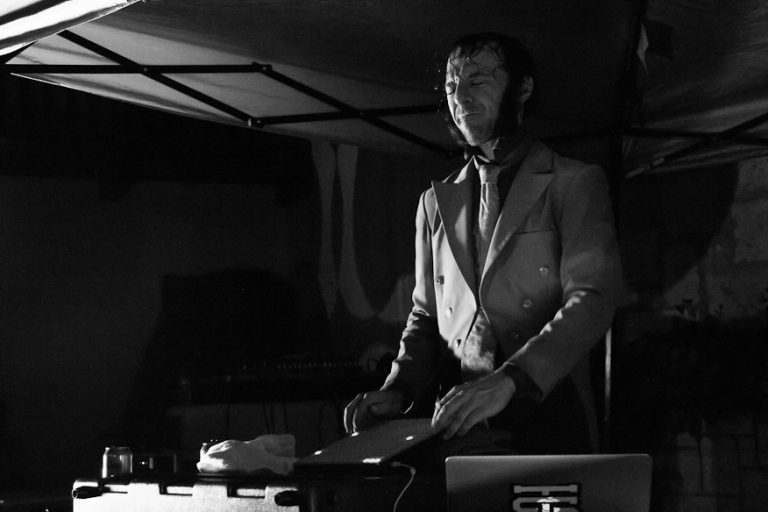
Daedelus is a music producer and beat maker from Los Angeles, CA. His repertoire is extensive and dates back as far as 2001 when he released his first album titled Her’s is >. Since then he’s produced songs for Prefuse 73, Busdriver, Thirsty Fish and has remixed songs for Flying Lotus and Mono/Poly. He recently released his 15th studio album titled The Light Brigade. Fusion Mag caught up with the master beat maker after his show in San Antonio, TX, to talk music.
What does music mean to you?
Music is the prevalent most important thing in my life, and it’s the only connective tissue that I feel keeps me both grounded and in the air—like between states—gases, solid, the whole thing. I can’t underline it enough the importance it has on my life. That being said, the moment I made it my profession there was an element in me that felt it was cheapened or made brittle lets say. Suddenly at moments doing gigs I really didn’t want to do and it felt a little prostitutionish but over the years now I’ve learned that’s just the layer of dust or dirt you just have to sweep away and you always can get the good things. You just have to ask the right questions not the wrong ones. Like, why I am here?? No, no that’s not the right question, like what can I be doing here? How can I make this better? So, music re-gains its energy, it was imperiled for me and then it came back.
What is your first memory of music?
A lot of strong ones. Los Angeles has a wonderful radio scene, especially when I was a real young kid. I remember really vividly hearing all these weird electro dance songs on what would now be the hip hop station but back then was a dance station. And even slightly before that I had this really amazing sensation or this amazing experience of my next door neighbors father’s brother was the manager of George Clinton. So, as a young person I had access to these records, these Parliament Funkadelic George Clinton—all that stuff. I had no idea the sexual references, the drug references, I was all lost on me but the music is incredible, like super essential. I actually met George Clinton as a child. It’s a very vague memory but I remember his 3 Mohawks and sitting on his knee and him probably being very high but talking to the dude as a very young child. So, that isn’t a memory of music it’s a memory of music incarnate, like that dude is like, might as well be a demigod of music.
You have an incredible ear and talent for music. What made you choose beat making as opposed to guitar, drums, or a band?
I have a background on double bass—jazz bass was my instrument for a while and bass clarinet was another instrument I studied. I’ve tried to learn other instruments but I really do feel like every element, every instrument, every frequency is melodic space. So, when I’m making a track I want to have the melody be carried by stings or voices but also the rhythmic part is a melody in itself and it’s something the other instruments cannot do, they can’t be so low or be that puncturing like drums can be. That’s why I’m drawn to it—not so much drawn to one thing or another—it’s just that everything needs to be expressed. So that’s the tools I feel comfortable with.

Tell me a little about your style of mixing music and beat making—not going to the traditional turntables, Serato, laptop route?
I really appreciate the fact that you’ll see people that are extremely good in very confined situations. If you think about a turntable—all you can really do is pull the record back or push it forward and let it play, but I mean letting it play is just basically pushing it forward. You only can do two actions and you can transform the sound, you can cut it out, you can bring it, you can slow it down, speed it up, but that’s it. The same thing with traditional instruments, you only can do what your ten fingers allow you to. So, I was always really attracted to modifications that allowed me to do more, to be more present, to be more interactive, and this machine…. I feel so very lucky that it happened in my life. It really was by chance that I met the creator of this when he was still prototyping it, and then was able to be using it now since 2003 and still is like this elegant solution to a very difficult problem to how do you handle sample base material, how you handle music, and you want to keep it living and breathing.
Where you see the DJ and music production for the future?
I see more and more people being empowered with the tools to create it, but I still feel like it’s a specialized calling. You’re hit with a pretty heavy stick and then you just want to do it—and nothing will stop you from doing it versus the average person that wanders into it for a while and then wanders out. We’re kind of having a return actually—there was a period of time like a 100 years ago—everyone could play piano. It was part of standard education. That was kind of the way you learned math and how you learned relationships, through piano, you can play songs, you can play these popular songs, because there wasn’t really other forms of reproduction that was accessible. So, I think we are kind of returning to that. Everyone has the ability to make a song but very few people choose to really write songs. They choose to reproduce them somehow, they remix, they have the little ipad fidget or whatever. It still such an important part of youth culture. It’s amazing.
TEXT & PHOTO: Alex Duran


